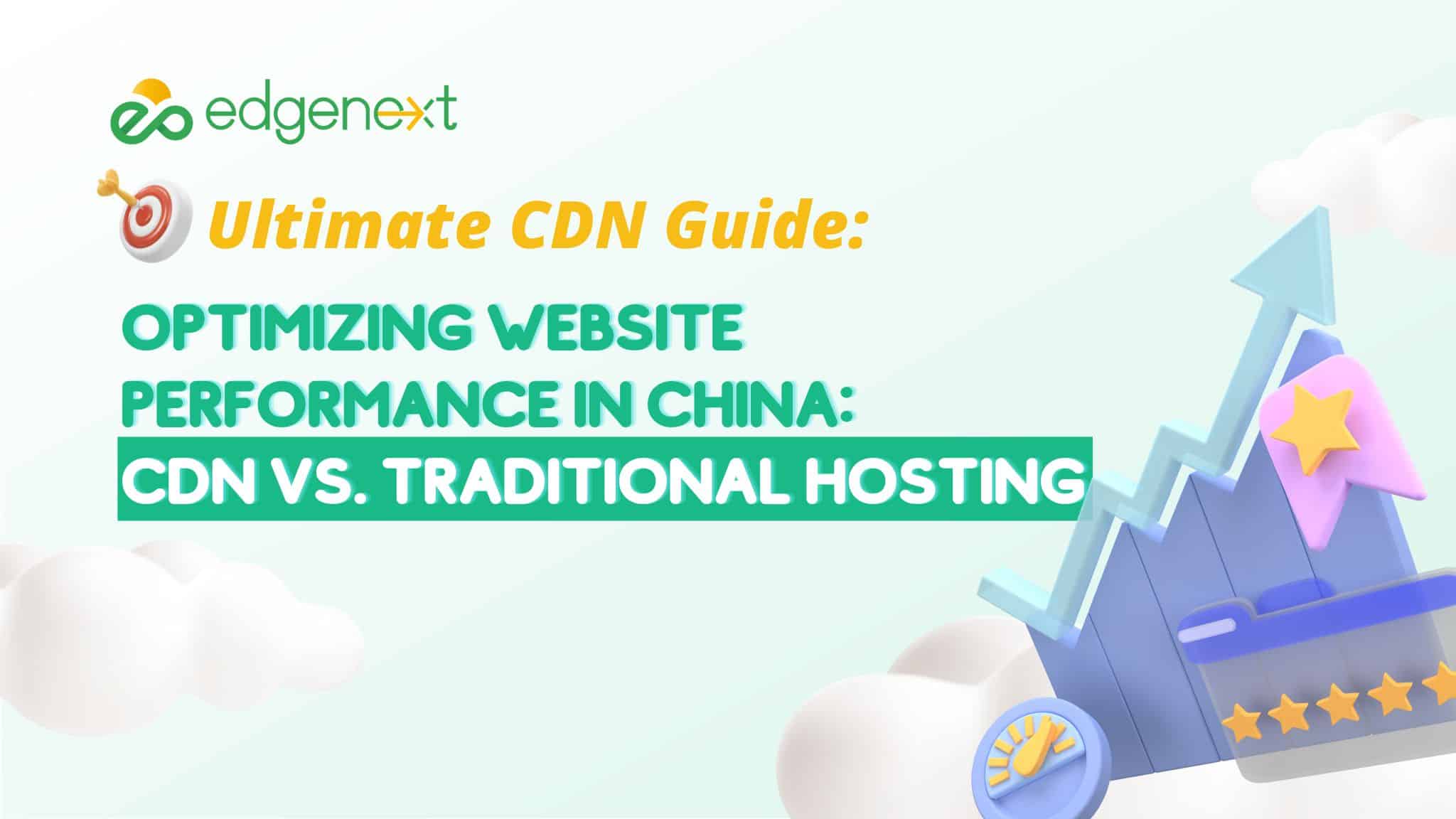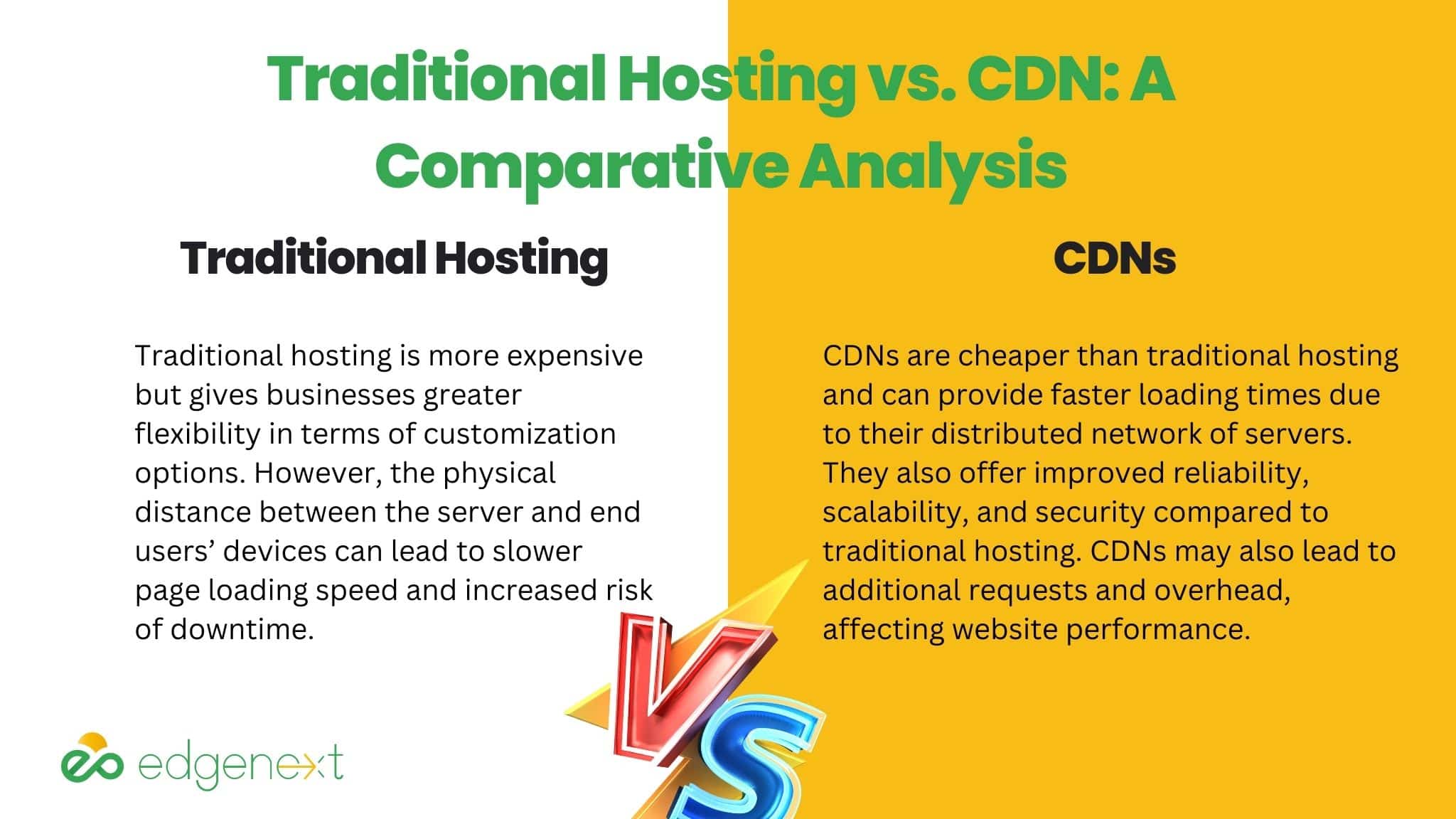
With the rise of e-commerce, China is now a country that heavily relies on the Internet and digital technologies to facilitate economic growth. As such, website performance has become increasingly crucial for businesses to remain competitive. Content delivery networks (CDNs) and traditional hosting are critical approaches for optimizing website performance in China. In this article, we will discuss the pros and cons of each approach and how they can be used to improve website performance in China.
Website performance measures how quickly, reliably, and efficiently webpages can be delivered to end users. This is usually measured in page loading speed, uptime (the percentage of time the website is available), and bounce rate (the percentage of visitors who leave the website without completing their desired task). In China, where digital tools are increasingly pervasive, website performance is crucial to user experience and business success.
To ensure good website performance, businesses must optimize critical metrics such as page loading speed, uptime, and bounce rate. Page loading speed refers to the time it takes for a webpage to fully load on the user’s browser, while uptime measures how often your website is available to users. Additionally, reducing the bounce rate is essential for keeping visitors on the website and ensuring they complete their desired tasks. Improving these metrics can lead to better customer experiences, improved search engine rankings, and ultimately more success for businesses in China’s digital market.
Traditional hosting refers to hosting a website on a physical server owned or rented by the business. This type of hosting allows companies to have complete control over their network infrastructure, allowing them to customize and configure them according to their needs. However, traditional hosting can be expensive and require significant maintenance and technical expertise. Furthermore, the physical distance between the server and endusers’ devices can affect the website’s loading speed and uptime.
On the other hand, traditional hosting offers some advantages regarding website performance. For example, businesses can fully control their servers and customize them according to their needs. Additionally, since all the data is stored on a single server, there’s less latency than using multiple servers. This can improve page loading speed, uptime, and better scalability. In short, traditional hosting can be a viable option for businesses looking to improve their website performance, although it comes with challenges.
A content delivery network (CDN) is a distributed server network that provides faster loading times and improved uptime by caching website content in multiple locations worldwide. CDNs effectively improve website performance, allowing businesses to serve content from servers closer to end users’ devices. This reduces latency and ensures that webpages are loaded faster, as the content doesn’t have to travel long distances.
However, CDNs come with their own set of challenges. For example, while CDNs can improve loading speed and uptime, they can also add some overhead due to the additional requests made to the server. In short, CDNs are a great way to improve website performance in China, but businesses should weigh the pros and cons carefully before deciding.

Regarding website performance, traditional hosting, and CDNs offer different advantages and disadvantages. Traditional hosting is more expensive but gives businesses greater flexibility in terms of customization options. However, the physical distance between the server and end users’ devices can lead to slower page loading speed and increased risk of downtime.
On the other hand, CDNs are cheaper than traditional hosting and can provide faster loading times due to their distributed network of servers. They also offer improved reliability, scalability, and security compared to traditional hosting. CDNs may also lead to additional requests and overhead, affecting website performance.
In conclusion, businesses should consider traditional hosting and CDNs to improve their website performance in China. Both have advantages and disadvantages that need to be weighed against each other before making a decision. Ultimately, the best choice depends on the specific needs and goals of the business.
There are many examples of businesses in China that have seen significant improvements in website performance after shifting from traditional hosting to CDN. For example, one company reported a 20% increase in page loading speed and uptime after switching to a CDN. This led to improved customer experience and an overall increase in conversions.
Another business reported a 10% increase in website traffic after shifting to CDN. The company attributed this to improved page loading speed, increased uptime, and better search engine rankings due to the faster loading times. They also said that the switch improved their website’s scalability and security.
These case studies demonstrate the potential benefits businesses in China can experience by shifting from traditional hosting to a CDN. However, it’s important to remember that each business is different, and results may vary depending on the specific needs and goals of the company.
Several factors must be considered when choosing between a CDN and traditional hosting for a website in China. For example, businesses should evaluate their budget and determine the cost-effective option. They should also consider the features and customization options available with each solution.
Businesses should also consider the scalability of each option, as well as latency and loading speed. Generally speaking, CDNs can offer faster page loading times and improved uptime, while traditional hosting may be more cost-effective. However, businesses should evaluate their specific needs before making a decision.
Finally, businesses should also consider the security implications of each option. CDNs typically offer better security and protection against cyber threats, while traditional hosting may be more vulnerable to attacks.
Businesses should consider CDN and traditional hosting to improve website performance in China. Each has advantages and disadvantages that need to be weighed against each other before making a decision. Ultimately, the choice will depend on the specific needs and goals of the business.
In conclusion, businesses looking to optimize their website performance in China should consider traditional hosting and CDNs. Traditional hosting is more expensive but offers greater flexibility in terms of customization options and improved scalability. On the other hand, CDNs are typically cheaper than traditional hosting and can provide faster page loading times due to their distributed network of servers. Additionally, they offer improved reliability, scalability, and security compared to traditional hosting.
Ultimately, the choice between a CDN and traditional hosting will depend on the specific needs and goals of the business. Businesses should carefully evaluate both options before deciding, as each has advantages and disadvantages that must be weighed against each other. With careful consideration and the right choice, businesses can experience significant improvements in website performance in China.
We encourage businesses in China to evaluate their website performance and consider the potential benefits of switching from traditional hosting to a CDN. If you have questions or want advice about optimizing your content delivery, don’t hesitate to contact one of our China CDN & Hosting Experts today!
We also invite readers to share their experiences with CDNs and traditional hosting in China. Have you experienced any improvements after switching from conventional hosting to a CDN? Do you have questions about which option is better for your business? We’d love to hear your thoughts!
Reference:
Investor Insights Asia. (n.d.). Understanding the evolution of China’s e-commerce empire. https://www.investorinsights.asia/post/understanding-the-evolution-of-china-s-e-commerce-empire
ResellerClub Blog. (n.d.). Cloud vs. Traditional Hosting: What’s the Difference? https://www.knowmad.com/blog/benefits-of-cdn-hosting-vs.-traditional-website-hosting
Scaleflex Blog. (n.d.). What is a CDN and How it Works? https://blog.scaleflex.com/what-is-a-cdn-and-how-it-works/
EdgeNext. (n.d.). China CDN. https://www.edgenext.com/china_cdn/
© 2025 EdgeNext Copyright All Right Reserved